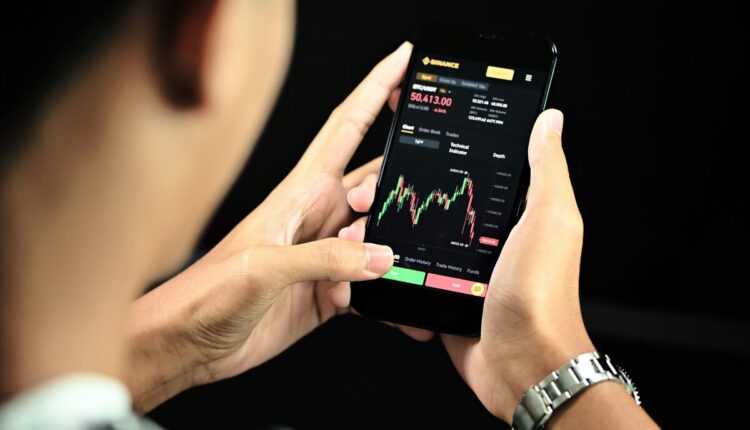Forex trading is an international marketplace where trillions of dollars change hands daily. To be successful at forex, extensive training and practice are required, while brokers serve as mediators between individual traders or investors and the global market. Read the Best info about forex robot.
Trillions of dollars move around the globe 24 hours a day, five days a week in one of the most active markets worldwide.
A forex broker is a financial services company
Forex brokers are financial services firms that facilitate access to the foreign currency market, providing clients with trading platforms and leverage to speculate on market movements. They act as intermediaries between an interbank currency market and retail traders – this business model has expanded significantly with personal computers and Internet use as more traders look for access to this large, liquid market.
However, while stock brokerage firms are overseen by the Securities and Exchange Commission (SEC), forex brokers fall under the jurisdiction of the Commodity Futures Trading Commission (CFTC), which ensures they adhere to stringent regulations regarding retail client funds in separate accounts from their funds. It’s vitally important that you select an ideal broker for yourself as there may be numerous variables that impact your trading experience.
Brokers generate revenue by charging a spread on each trade they conduct – the difference between “bid” and “ask” prices of currency pairs; these spreads can differ widely between brokers; some even charge a commission on each transaction they complete.
A good forex broker will offer its clients an expansive selection of trading instruments, from major and minor currency pairs, leverage options such as 100:1, as well as superior trading platforms and research tools.
A forex broker is a middleman
Forex brokers act as intermediaries between traders and the financial market, providing traders with a platform enabling them to speculate (make bets) on currency prices through speculation (making bets). Forex brokers make money by charging clients a spread or commission in return for executing trades on their behalf; they do not act by client interests nor act on a fiduciary basis.
When selecting a forex broker, it is vitally important that they are regulated by an authoritative regulatory body. Regulated brokers must keep retail client funds separate from their funds and submit regular audit reports and audit audits to their regulators. They should also offer 24-hour support. If a broker does not fall into either of these categories, consider seeking another alternative.
Forex brokers must successfully pair buyers and sellers of foreign currencies to generate income, an arduous task given how these assets trade as pairs – purchasing one currency requires selling another simultaneously, sometimes hundreds or even thousands of miles apart; to bring these parties together a facilitator must be in place – this is why forex brokers exist!
A forex broker is a liquidity provider
Forex liquidity providers play an integral part in the forex market. By providing a steady supply of buy and sell orders, liquidity providers ensure there is always someone ready to trade at prices you are comfortable with – something which is especially essential for scalpers, who require multiple trades to turn a profit.
Liquidity providers are large market participants that connect funds and financial institutions in a network. They ensure consistent pricing among intermediary market participants such as brokers. Furthermore, liquidity providers ensure that prices shown on trading platforms reflect true currency pair exchange rates – an essential function in maintaining market liquidity and preventing flash crashes.
Selecting an optimal liquidity provider can be a complex endeavor for brokers with limited resources, as there are various aspects such as market size, amount of liquidity provided, and speed of execution that need to be taken into account. Brokers tend to favor publicly listed liquidity providers as these will need to submit regular financial reports which offer greater transparency compared with private players.
As the forex market expands, new avenues for liquidity provision have opened up. Some brokers now offer cryptocurrency pairs alongside traditional forex pairs to broaden hedging capabilities and reach out to new audiences.
A forex broker is a trading platform
Forex brokers give access to the market by connecting buyers and sellers for a fee, helping clients understand risk, and making informed trading decisions. Regulated by governments worldwide, forex brokers must account for their actions; to find one reliable one quickly it’s best to read reviews and compare services offered.
Many forex brokers provide demo accounts to allow novice traders to hone their skills before investing real money. Some offer free demo accounts while others charge a small amount to use their platforms, with some even offering mobile applications so you can trade wherever and whenever. Selecting an ideal forex broker depends on your trading style and needs; be sure to read its terms and conditions thoroughly before making your selection.
There is an array of forex brokers to select from, each with unique qualities and drawbacks. While some focus on customer support others provide better tools and resources. You should also pay close attention to a broker’s reputation in the industry and its track record in serving its client base.
Forex brokers act as intermediaries between you and the interbank network of banks to buy and sell currencies on your behalf. They offer quotes for currency pair prices to traders before connecting you with another party who is willing to take up both sides of a trade.

